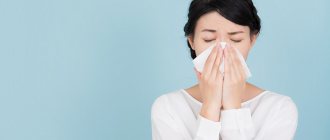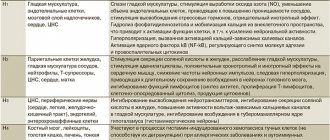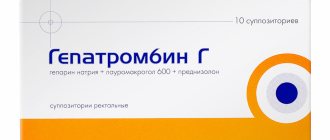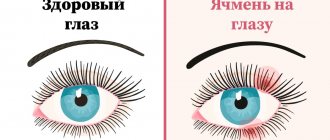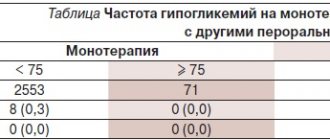Allergy pills are designed to eliminate specific negative symptoms resulting from a reaction to a specific allergen. Many substances can act as irritants:
- plant pollen;
- food products;
- cosmetical tools;
- household chemicals;
- dust;
- pet hair;
- etc.
Allergy medications significantly alleviate the condition of people diagnosed with this pathology, improving their quality of life and allowing them to remain productive.
The principle of action of allergy remedies
The modern pharmacy market is represented by high-quality allergy medications (antihistamines, antihistamines).
There are 3 generations of allergy medications. What are the fundamental differences?
Some of the drugs are classified as homeopathic and hormone-containing drugs. The selection of medications is carried out by an allergist after collecting an anamnesis, external examination of the patient and conducting laboratory diagnostic tests (including allergy tests).
The mechanism of action of antihistamines is to block histamine receptors, which leads to the elimination of negative symptoms.
Reference.
Allergy in medicine is usually called the response of the human immune system to any irritating factor (allergen). Contact with an irritant and/or with many irritants leads to the active state of a biologically active component - histamine (an allergy mediator found in most tissues of the body). This biologically active substance is not dangerous to the body if its activity is not observed. In its active state, histamine leads to disruption of the functions of organs and systems - nervous, muscular, respiratory, digestive, etc.
As a result, the following symptoms may occur:
- Watery eyes, copious discharge from the sinuses.
- Impaired nasal breathing.
- Sneezing, coughing.
- Bronchospasm/breathing disorder.
- Activation of the process of secretion of gastric juice.
- Disturbance of the digestion process and stool (diarrhea).
- Dilatation of blood vessels.
- Edema.
- Skin rashes.
- Headaches, dizziness, fainting.
- Muscle spasms.
- Blood pressure surges.
- Arrhythmia.
- Dry mouth, voice changes.
- Chest/heart pain and more.
Attention!
The condition requires taking special antihistamines that eliminate the negative manifestations of the disease. Experts recommend using modern high-quality medicines to treat allergies of various origins and not experimenting with traditional recipes.
First generation drugs
1st generation antihistamines are able to penetrate the nervous system. This helps to quickly eliminate allergy symptoms. However, their effect does not last long, and with long-term use of drugs of this group, addiction may occur. The most common side effects of 1st generation antihistamines are drowsiness, weakness, headache, dizziness and slow reactions. Despite significant disadvantages, these drugs are low in cost and, unlike modern drugs, are available in both tablet and injection form, which allows them to be used for emergency care. Not intended for long-term treatment. In this group there are 4 most effective drugs: diphenhydramine, diazolin, suprastin and tavegil.
- Diphenhydramine. One of the very first antihistamines. Dispensed strictly according to prescription. Used in emergency situations. Not suitable for children.
- Diazolin. Does not cause significant drowsiness. Can be used for prevention purposes. Suitable for use by both children and adults. Longer lasting effect. Ineffective for severe allergic reactions.
- Suprastin. Does not cause significant drowsiness. A rapid therapeutic effect and, compared to other drugs in this group, there are fewer side effects. Has a wider range of indications. Can be used by both adults and children. Not recommended for use in bronchial asthma.
- Tavegil. Used as a treatment for both allergic and pseudoallergic reactions. Does not cause significant drowsiness. Effectively relieves allergy symptoms, especially during the flowering period. Effective for 8 hours (the longest effect from the group of first-generation drugs).
What is the best allergy medicine?
In medicine there is no concept of “best” and “worst”. The drugs of each group have their own advantages, disadvantages and characteristic features. When prescribing them, many factors are taken into account, including the patient’s age, the presence or absence of concomitant diseases, as well as the degree and type of allergy. What suits one person may not only be of no benefit to another, but even harmful.
Important!
Allergic diseases can always be treated with medications. This can be taking tablets individually (monotherapy) or complex treatment. In this case, the allergy drug is part of a complex treatment that includes drugs belonging to other groups.
Third generation drugs
If you have an allergy, you should always have antihistamines in your home medicine cabinet.
Officially, third-generation drugs have not yet been developed, however, unofficially, improved second-generation drugs are included in this group. This group is characterized by a rapid onset of action and high efficiency. The drugs have fewer side effects. Individual intolerance is possible. They can be used both to relieve allergy symptoms and for long-term treatment of the disease. They do not affect heart rate. The best third-generation drugs include Cetrin, Erius, Xizal, and Fexofen.
- Cetrin. Available in the form of tablets (contraindicated in children under 6 years of age) and in the form of syrup (contraindicated in children under 2 years of age). The effect lasts up to 24 hours. Effective in the development of edema. Syrup as part of complex therapy relieves spasms in bronchial asthma. It has virtually no contraindications. Should be used with caution in elderly people.
- Erius. Available in the form of tablets (contraindicated in children under 12 years of age) and syrup (contraindicated in children under 1 year of age). It works almost immediately. Duration of action is up to 24 hours. Relieves and prevents the development of allergy symptoms. Should be taken with caution in case of renal failure
- Xizal (Zodak). Available in the form of tablets and drops. Has an anti-inflammatory effect. Quickly eliminates itching, swelling and redness. The effect of the drug is observed for up to 2 days. Contraindicated in renal failure. Not suitable for use by children under 6 years of age.
- Fexofen (Allegra, Fexofast). Effectively eliminates allergy symptoms, especially with seasonal rhinitis. The effect lasts for 12 hours. Can be used as prophylaxis. Not suitable for use by children under 12 years of age.
Complications of allergies in children
In the absence of competent measures, diseases and conditions that are difficult to treat may develop. Many of them significantly worsen the child’s health, reduce his quality of life and often lead to disability, these are:
- Chronic rhinitis.
- Persistent headaches.
- Deterioration of memory and concentration.
- Autoimmune disorders.
- Bronchial asthma, anaphylactic shock or asphyxia.
Allergies in children of any age require timely contact with a qualified specialist and constant monitoring. Only an experienced pediatric allergist can prescribe adequate treatment and provide competent medical supervision.
Causes of allergies
The cause of an allergy is an allergen. Science and medicine figured this out a long time ago. As for the reasons for increased sensitivity to a particular substance, there are many mysteries. For an unknown reason, excessive activation of immune cells (mast cells and basophils) occurs in response to the appearance of an allergen in the body. An inflammatory process is initiated, which can be mild (runny nose, lacrimation, itching) or life-threatening (anaphylactic shock, Quincke's edema).
In developed countries, a constant increase in the number of allergy sufferers is recorded. The exact reason for this phenomenon has not yet been established. Today, the dominant theory in this sense is the hygienic theory¹. It was put forward by David Strachan in 1989. According to this hypothesis, excessive hygiene leads to an undertaxed immune system. As a result, the immune system begins to react to harmless antigens such as plant pollen or animal fur.
Remedies for allergies during pregnancy
Negative signs of allergies are not just the appearance of unpleasant symptoms, but a high probability of developing autoimmune disorders. This factor should be taken into account by women carrying a child. Therefore, if characteristic symptoms of the disease appear, you should consult a doctor and start taking the medications prescribed by the specialist.
Important!
It is prohibited to buy or take any
allergy medications
without consulting a doctor and undergoing examinations. Self-medication is not acceptable! This is especially true for pregnant women. It should also be taken into account that many drugs are prohibited during pregnancy.
Properly selected, high-quality, modern medicines cannot cause serious harm to the mother’s body and do not affect the development of the fetus. Such drugs, if necessary, are also prescribed to breastfeeding women.
Sources
1. Scudellari M. (2017).
News Feature: Cleaning up the hygiene hypothesis. Proceedings of the National Academy of Sciences of the United States of America, 114(7), 1433–1436. https://doi.org/10.1073/pnas.1700688114 2. State register of medicines. Instructions for use of the drug for medical use CHLOROPYRAMINE https://grls.rosminzdrav.ru/ImgInstr.aspx?folder=ScanVavilova&Filepath=\Vneseno_v_Grls\454954\IP&idReg=160167&isOld=1&fileType=jpg&pfolder=2
3. Tenn MW, Steacy LM, Ng CC, Ellis AK. Onset of action for loratadine tablets for the symptomatic control of seasonal allergic rhinitis in adults challenged with ragweed pollen in the Environmental Exposure Unit: a post hoc analysis of total symptom score. Allergy Asthma Clin Immunol. 2018;14:5. Published 2021 Jan 16. doi:10.1186/s13223-017-0227-4
4. Axelrod, David, and Leonard Bielory. “Fexofenadine hydrochloride in the treatment of allergic disease: a review.” Journal of asthma and allergy vol. 1 19-29. 19 Sep. 2008, doi:10.2147/jaa.s3092
How to choose allergy medications?
Now there are a lot of different antihistamines. We offer both expensive original medicines and their more affordable popular analogues. When purchasing, you should follow the recommendations of your doctor and do not replace your own prescribed medication with a similar drug.
Selecting a medicine for allergies is the prerogative of an allergist. A specialist is able to accurately identify the allergen, identify the type and degree of the disease, and, based on all the data, select the best option for successfully blocking histamine receptors.
The main rule to follow
- this is an appeal to a trusted drug supplier. Only in this case can you avoid counterfeiting and not overpay for goods of dubious origin. The network of social pharmacies Stolichki guarantees the authenticity of medicines and offers a wide range of medicines at affordable prices.
Types of allergies
Depending on the allergen, the following types of allergies are distinguished:
- allergy to pollen (hay fever);
- food allergies;
- for insect bites;
- animal hair;
- medicines;
- chemical irritants (for example, household chemicals);
- other types of allergies (to alcohol, sun, cold, etc.).
Figure 1. Types of allergies. Image: inspiration/freepik.com
Is it possible to calm the child down a little with an antihistamine?
The desire is understandable, but it is impossible. Firstly, the sedative effect of these drugs - most often the first generation - is very non-selective. When the effect is achieved, you will “turn off” not only motor activity, including “vocal” activity, but also thought processes, and in case of an overdose, there is a danger of developing hallucinations, convulsions, tachycardia, urinary retention, fever, and coma. Secondly, you can achieve the exact opposite result: in children - the younger, the more often - antihistamines (usually the first generation, but potentially any) can have an stimulating rather than a sedative effect.
Stopping or reducing contact with the allergen are so-called elimination measures.
The basis of any method of successful treatment of allergies is, first of all, the elimination of contact with the allergen.
In most cases, this is enough to completely get rid of allergy symptoms or significantly reduce its manifestations. If the cause is not eliminated, then, unfortunately, even the best anti-allergy medications will only provide a temporary effect. If you know the allergen for sure, try to eliminate it, which will help get rid of the allergy. In some cases, this is easy to do: you can always refuse an exotic fruit or a certain type of cosmetics. Sometimes this is difficult: for example, to completely get rid of dust or not to come into contact with pollen from flowering plants. And in some cases, especially if a person has several irritants at once, it is simply impossible to completely eliminate everything. In this case, it is important to minimize contact with the allergen.
The most common causes of allergies are household allergens and food, which is why during treatment, first of all, attention should be paid to a hypoallergenic lifestyle and a special diet.
The most common household allergen is house dust. This is a whole complex of allergens, which includes the epidermis of humans and animals, microscopic spores of mold and yeast, insect waste products, etc.
What helps against household allergies and creating a hypoallergenic lifestyle is written in detail here. Adhering to a hypoallergenic lifestyle is important not only for those who are allergic to dust, but also for all people suffering from any allergies, as well as those with a hereditary predisposition to allergic diseases.
A hypoallergenic diet is one of the allergy treatment methods that plays a special role in the treatment of allergic diseases, especially if there is a food allergy without clear indications of any type of product. In this case, it is recommended to exclude all highly allergenic foods from the diet: chocolate, strawberries, strawberries, citrus fruits, tomatoes, red apples, fish, chicken, eggs, etc. It is also necessary to avoid foods with dyes and preservatives, hot and spicy dishes, alcohol and carbonated drinks, and limit salt intake. The nonspecific hypoallergenic diet is described in detail here. Adhering to such a diet is recommended for all allergy sufferers and persons predisposed to allergic reactions.
If you are allergic to pollen, then a special diet is prepared that takes into account the risk of cross-reactions with pollen allergens. The dusting/blooming calendar and cross-allergy table can be found at the links above.
